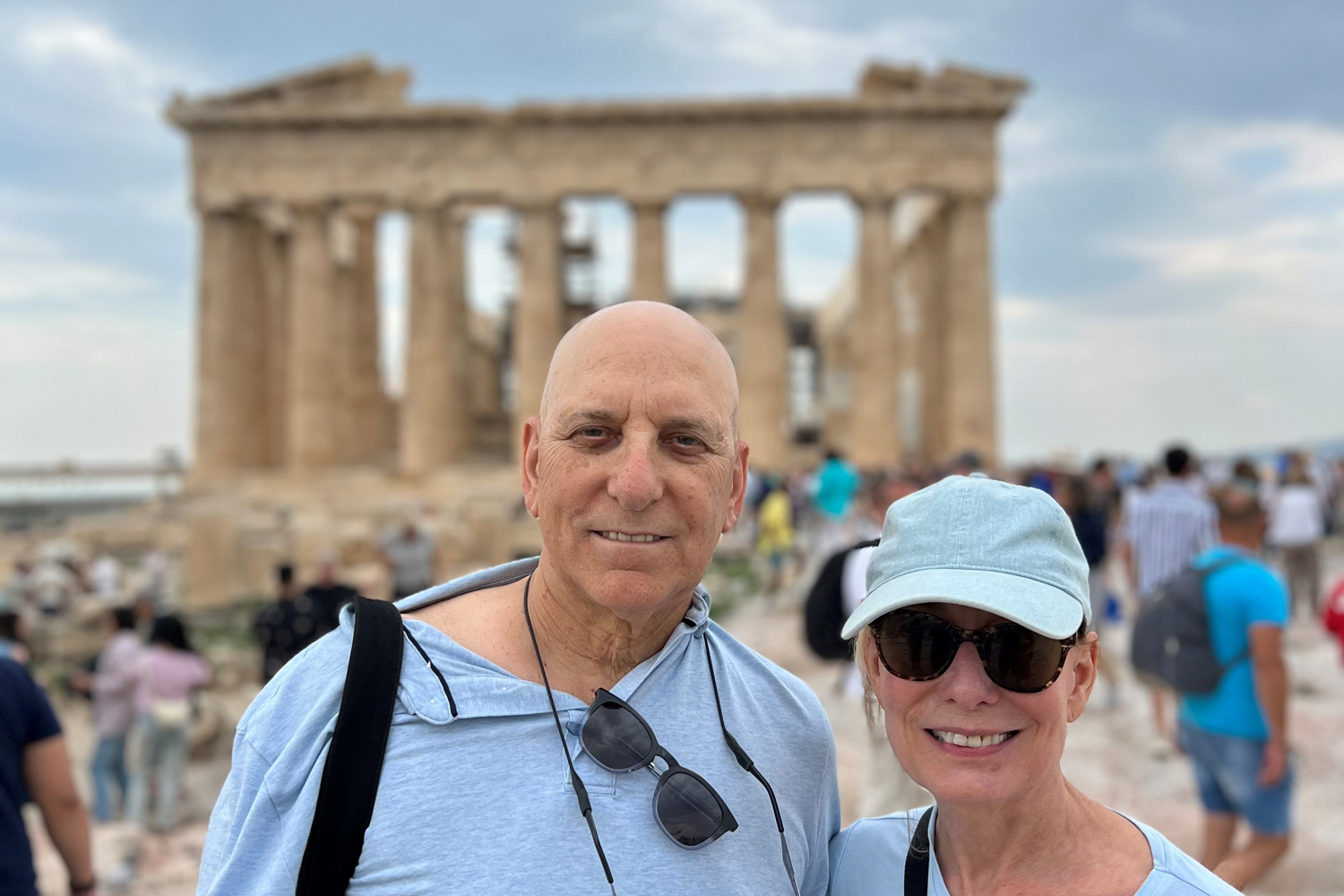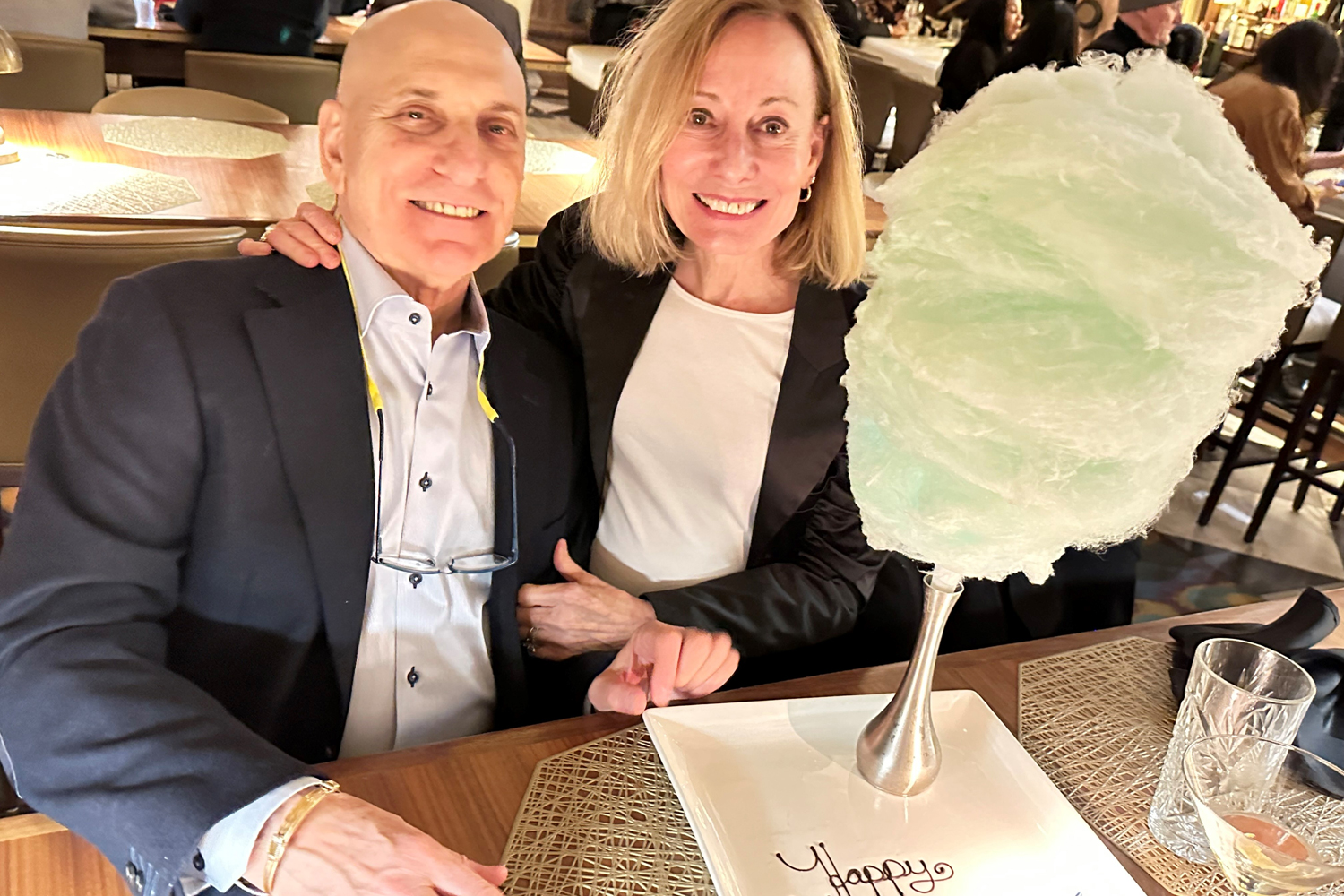I THOUGHT I KNEW how to be a cancer caregiver. I drove my mother to her radiation and chemo treatments during her second bout with breast cancer. Ten years later when she died from lymphoma, I held her in my arms while she cried out for her mother.
But when my husband was diagnosed with prostate cancer in June 2022, I was unprepared for the treatment’s turbulent effects on both of us.
We researched the disease. He pursued finding the best doctors and hospital. We moved to the Chicago area from downstate Illinois to be treated by a Northwestern Medicine oncologist.
I read neurosurgeon Henry Marsh’s book And Finally about his own prostate cancer, and together we listened to Boston Globe reporter Mark Shanahan’s six-episode podcast, “Mr. 80 Percent,” about his diagnosis at age 47.
Someone I never physically met became my closest friend. She helped administer an online support group for women caring for loved ones with prostate cancer. Mary, whose husband was a 10-year survivor, was empathetic, responsive, and knowledgeable.
Prostate cancer, the most common cancer for American men aside from skin cancer, is not a simple illness. While it starts in the prostate, it spreads throughout the body when not identified early enough. Usually there are no symptoms.
In the U.S., men over 50 years old, or younger if they have a family history of prostate cancer, get a blood test to determine their prostate-specific antigen (PSA) level. That test may lead to a biopsy, which allows pathologists to grade cancer cells on a scale from 6 to 10. A score of 6 is the lowest grade cancer and patients with that score often opt for regular testing, or active surveillance.
If the scores are in the higher range and cancer is contained in the prostate, a radical prostatectomy might be suggested. The surgery’s goal is to remove the prostate and surrounding tissue without damaging the nerves that affect erections or incontinence.
But if the cancer has spread beyond the prostate, it is too late for surgery. That’s what happened to my husband, who was diagnosed with metastatic prostate cancer. He was prescribed a two-year treatment plan of radiation and androgen deprivation therapy—drugs that eliminate the testosterone that fuels cancer. It’s chemical castration.
Men undergoing androgen deprivation therapy can lose muscle mass and gain weight. They endure hot flashes, mood changes, fatigue, sleep disruptions and, of course, a banished sex drive.
Overnight, my tennis-playing, weightlifting, Viagra-eschewing spouse possessed the testosterone level of a fish, as his oncologist wryly noted. He strained to lift our 2-year-old grandson; he needed daily naps.
Losing sexual function while experiencing a rapidly changing body brings about a dramatic crisis for most men. The disappearance of the ability—and the desire—to have an erection can be profoundly life-changing and self-esteem-killing.
“Being impotent reaches down into your very soul. What does it mean to be a man anyway?” said Bill Tinney, another prostate cancer survivor, in Mark Shanahan’s podcast.
Acting as a caregiver to my husband’s distraught ego and wounded body, I suppressed my own sexual feelings. He felt like a eunuch; I felt like a nun. But if he no longer looked at me with desire, he still looked at me with love. I found comfort in that.

Christine Ledbetter and her husband, Dean Skylar, at the Parthenon in Athens during a 2023 trip through Turkey and Greece while Skylar was on hormone therapy. Photo courtesy of Christine Ledbetter
Prostate cancer is stigmatized and suppressed because affected men are perceived by some to be emasculated. Defense Secretary Lloyd Austin failed to disclose his disease and subsequent hospitalizations related to complications from his prostate surgery. “Prostate cancer and the associated procedures are obviously deeply personal,” said a Pentagon spokesman.
Until recent notable cases, men didn’t publicize their diagnosis.
British comedian and actor Stephen Fry, who had surgery to remove his prostate, has become an advocate for early detection, calling the disease “an aggressive little bugger” on social media.
Francis Collins, former director of the National Institutes of Health, explained his diagnosis for the Washington Post in April. “Why am I going public about this cancer that many men are uncomfortable talking about? Because I want to lift the veil and share lifesaving information.”
It’s also an uncomfortable topic for spouses. That’s why the online wives’ support group exists. A lot of raw sharing goes on in a safe place where questions can be asked, tears shed and anger expressed.
Earlier this year I sent Mary a note of appreciation to which she responded, “You are too kind. I’m always here.”
Now my husband is at the end of the two-year process. While his PSA is still detectable, he is taking a break from the drugs. He will be retested in three months.
But our North Stars, the people who helped guide us, are gone. Our oncologist left her practice at Northwestern for a career with a pharmaceutical company. And, tragically, Mary died unexpectedly in her sleep a few months ago.
My husband and I mourn as we stand at this precipice. He doesn’t feel like he used to and neither do I. He hopes to get his body and sex drive back. I just want him to stay alive.
Cancer Today magazine is free to cancer patients, survivors and caregivers who live in the U.S. Subscribe here to receive four issues per year.





